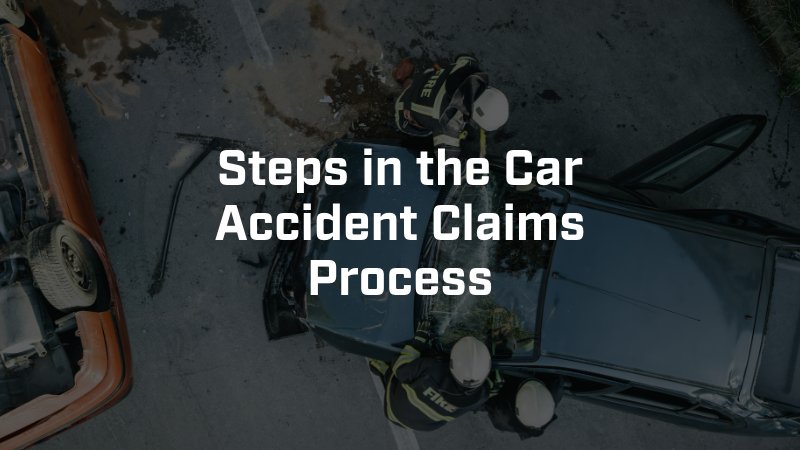You’ve been in a vehicle accident and aren’t sure what to do next. That’s okay. You’ll see below that we’ve outlined some of the most important steps you need to be aware of right away. However, this is not an all-inclusive list, and certainly not a how To Do List for filing your own claim. Car accident cases can become challenging quickly. If you have any questions about your particular situation, consider reaching out to an experienced Phoenix car crash attorney for a free consultation.

1. Seek Immediate Medical Attention
After a car accident, your health and safety are the top priorities. Even if you feel fine right after a collision, symptoms can sometimes appear later, especially in cases of soft tissue injuries or concussions. Getting prompt medical attention ensures that any injuries are documented from the beginning, which is essential for building a strong claim.
- Visit a doctor or emergency room. Documentation of your injuries by a doctor or other medical professional is critical. Even minor pain should be evaluated, as untreated injuries can worsen.
- Follow your doctor’s advice. Completing recommended treatments or physical therapy not only supports your recovery but also strengthens your claim, showing that you took steps to address your injuries.
2. Report the Accident to Law Enforcement
In many states, including Arizona, you must report an accident to the police if there is any injury, fatality, or significant property damage. Law enforcement officers will document the details of the accident, including statements from both parties, witness accounts, and evidence from the scene.
- Request a copy of the accident report. This report provides crucial information for your insurance claim and any potential legal case. Insurance companies and attorneys often use the police report to support the facts of the accident.
3. Notify Your Insurance Company
Most insurance carriers require immediate reporting of an accident sometimes within a few days. Failing to notify your insurer in a timely manner can lead to complications, such as denied claims.
- Provide the necessary information. You’ll typically need to provide details about the accident, other drivers involved, and any injuries or property damage sustained. However, it’s essential to be cautious about sharing too many specifics, especially regarding fault.
- Avoid admitting fault. Insurance adjusters may ask questions that could lead you to admit partial fault, which could impact your claim. It’s often best to consult with an attorney before making detailed statements about the accident.
4. Gather and Preserve Evidence
Building a strong car accident claim requires gathering as much evidence as possible. Documenting the scene and collecting key information helps strengthen your case and supports your version of events.
- Photograph the scene. Take pictures of the vehicles involved, damage to each vehicle, road conditions, traffic signs, and any visible injuries. These images provide essential visual evidence.
- Collect contact information. Get the contact information of the other driver, any witnesses, and responding officers. Witness statements can be invaluable if there’s any dispute over liability.
- Keep all documents. Retain copies of all medical bills, repair estimates, police reports, and insurance correspondence. These documents will be crucial when calculating the total amount of your claim.
5. Document Your Medical Treatment and Expenses
Maintaining detailed records of your medical care is essential for calculating damages and proving the impact of the accident on your life. You may need to track expenses such as hospital visits, prescriptions, physical therapy, and other medical services.
- Save all medical receipts and invoices. These documents help quantify your economic losses and demonstrate the need for compensation.
- Track missed workdays and lost income. If you missed work due to your injuries, record your lost wages. An attorney can help calculate any future earning losses if your injuries have long-term effects on your job.
6. Determine Liability and File Your Claim
Once you’ve gathered evidence and documented expenses, the next step is to establish liability. Arizona follows a fault-based system, meaning that the at-fault party is responsible for damages. Your insurance company, or your attorney, will examine the evidence to determine who is liable.
- Consider hiring an attorney. Car accident cases, unfortunately, can get tough quickly, especially if liability is disputed or if multiple parties are involved.
7. Work With the Insurance Adjuster
Once you’ve filed your car accident claim, the insurance company will assign an adjuster to evaluate your case. The adjuster will review the evidence, including law enforcement reports, medical bills, and repair estimates, to determine an appropriate settlement amount.
- Be cautious with initial offers. Initial settlement offers are often low. Insurance companies may attempt to settle quickly and minimize payouts.
- Negotiate if necessary. If the initial offer does not cover your expenses, you have the right to negotiate. An experienced car accident attorney can handle this process and advocate for a fair settlement.
8. Evaluate Settlement Offers
Before accepting any settlement, carefully review the offer to ensure it meets your current and future needs. Once you accept a settlement, you typically forfeit the right to seek additional compensation, even if new injuries or expenses arise later.
- Assess both short-term and long-term needs. Medical expenses, lost wages, and pain and suffering should all be covered. Consider any ongoing medical care or future costs related to your injury.
- Consult with your attorney. A personal injury attorney in Phoenix can evaluate the offer, calculate a fair settlement amount, and help you decide whether to accept, counter, or move forward with litigation.
